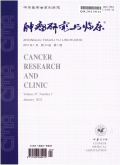摘要结直肠癌的发病机制与遗传和环境等综合因素有关.在环境因素中,肠黏膜的慢性炎症又是重要的癌变因素之一.在炎症相关因素中,肠道菌群起到桥梁和诱导介入的作用.环境改变破坏肠道菌群稳态,发生肠道菌群失调,诱导肠黏膜炎症,致病菌依附聚集在肠黏膜表面,产生细胞毒素与基因毒性产物,肠道上皮细胞发生遗传损伤,细菌的合成和代谢产物亦调控结直肠肿瘤的发生进程,这一过程导致炎症向癌变进展.文章综述了肠道菌群介导的从炎症到癌变的过程,以及相关条件致病菌的最新相关进展,并提出了可以调节肠道菌群,针对性的清除条件致病菌,并达到预防癌变的目的.文章就肠道菌群、肠道炎症和结直肠癌的关系进行综述.
更多相关知识
abstractsThe pathogenesis of colorectal cancer is related to genetic and environmental factors. Chronic inflammation of the intestinal mucosa is one of the most important factors in environmental factors. In inflammation factors, Intestinal flora plays a role in bridging and inducing intervention. Environmental changes disrupt the homeostasis of intestinal flora, intestinal flora maladjustment occurred, bacteria induces intestinal mucosal inflammation. The pathogenic bacterium adheres to the surface of the intestinal mucosa, it produces cytotoxic and genotoxic products, intestinal epithelial cells undergo genetic damage. The synthesis and metabolites of bacteria also control the occurrence of colorectal tumor process. This process leads to the progression of inflammation to cancer. This article reviews the process of intestinal flora mediated from inflammation to carcinogenesis, and the latest progress in related pathogenic bacteria, and proposes that the intestinal flora can be adjusted and targeted removal of the conditional pathogenic bacteria, and achieve the goal of cancer prevention. The relationship between intestinal flora, intestinal inflammation and colorectal cancer is reviewed.
More相关知识
- 浏览176
- 被引6
- 下载168


相似文献
- 中文期刊
- 外文期刊
- 学位论文
- 会议论文



 换一批
换一批 换一批
换一批



